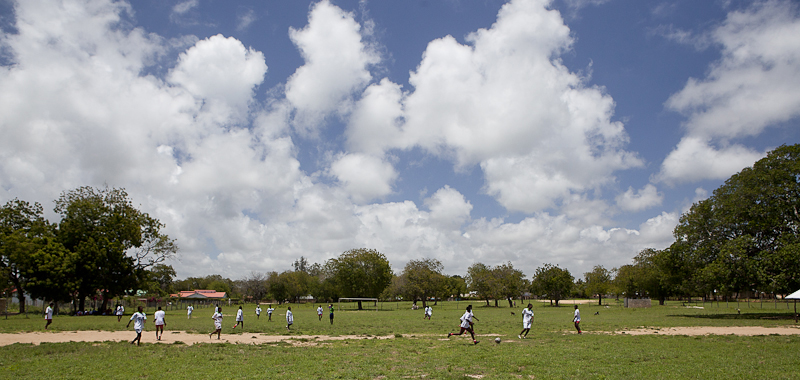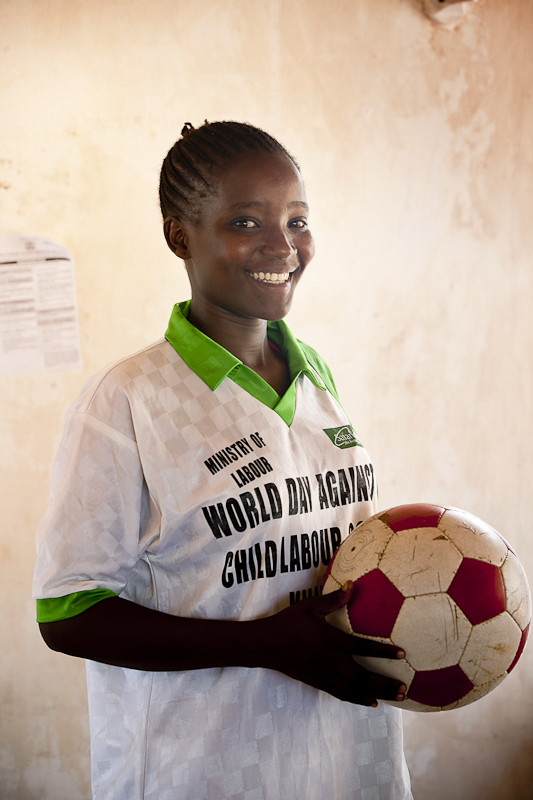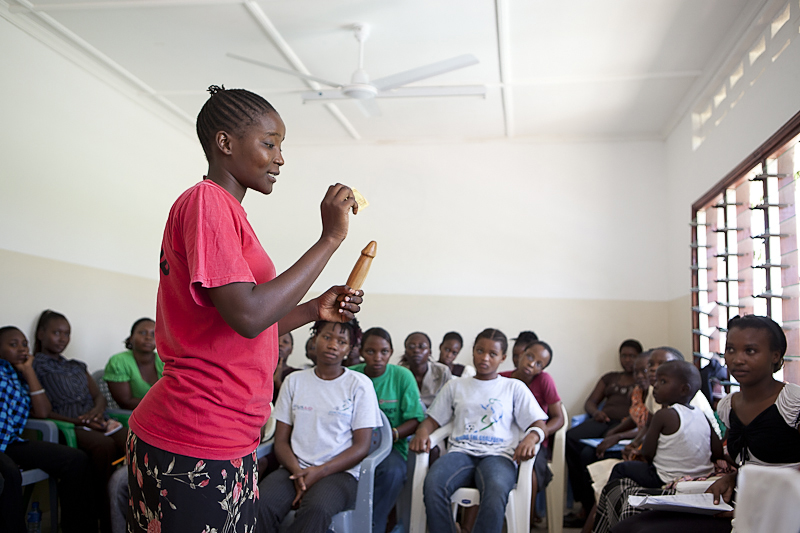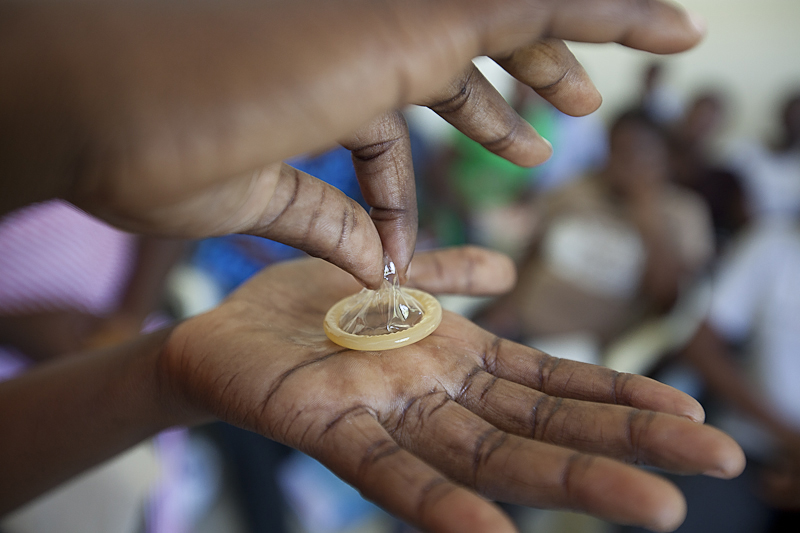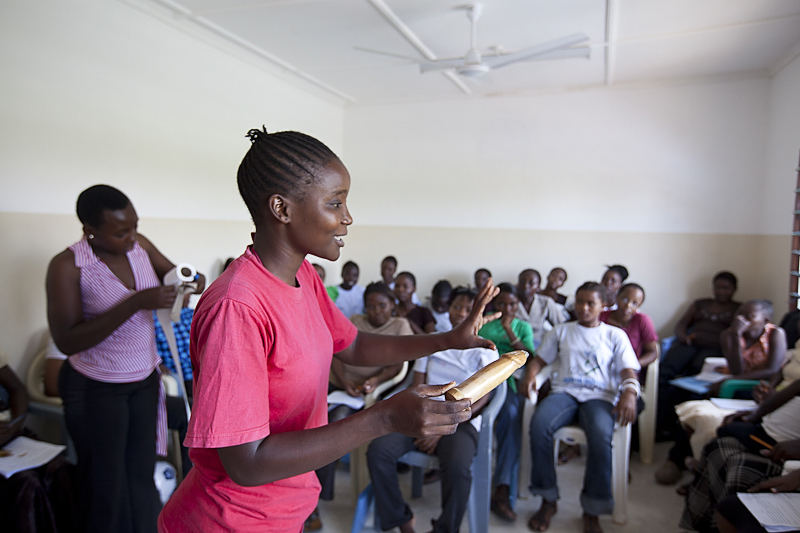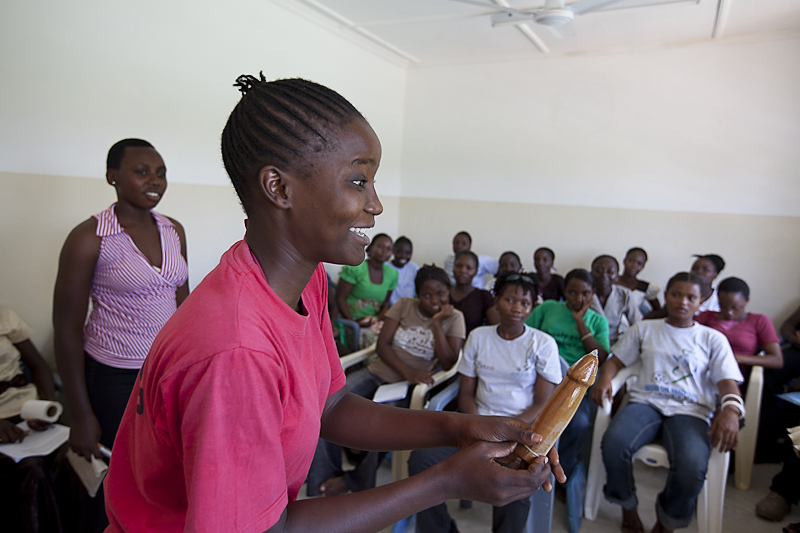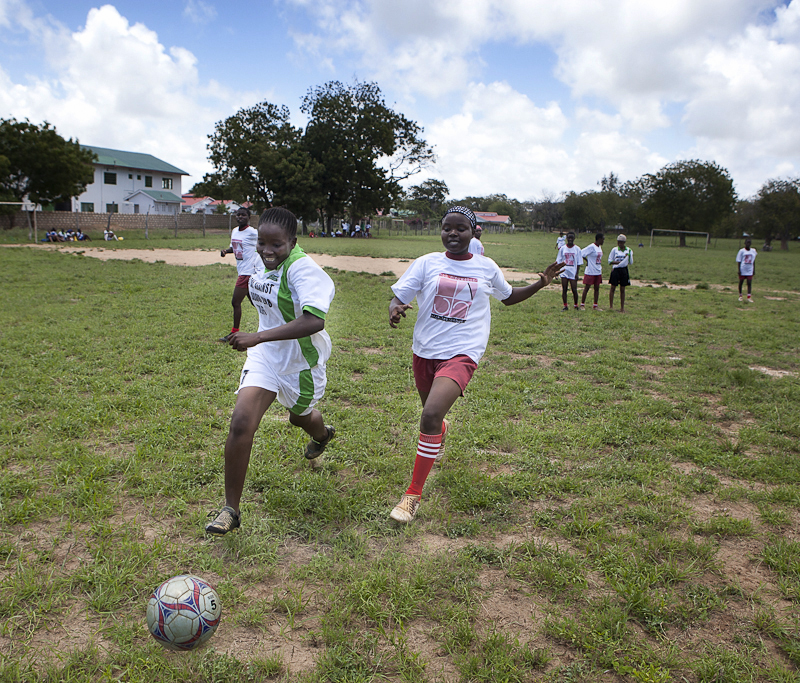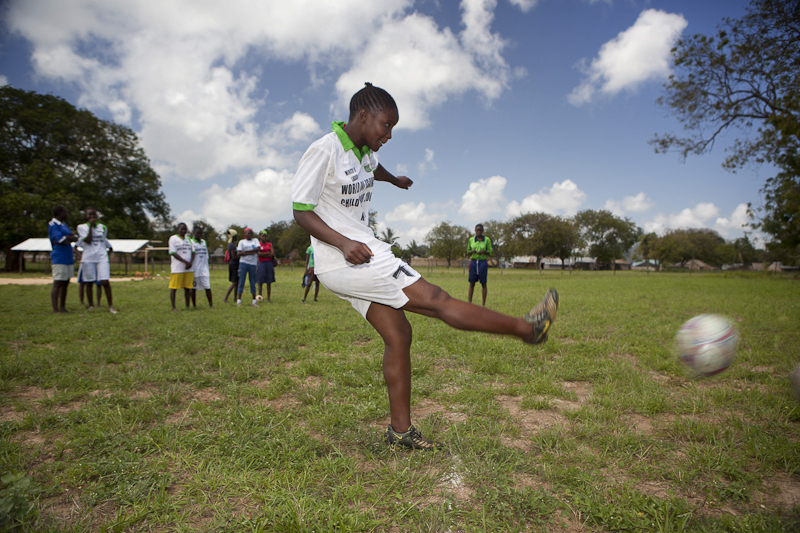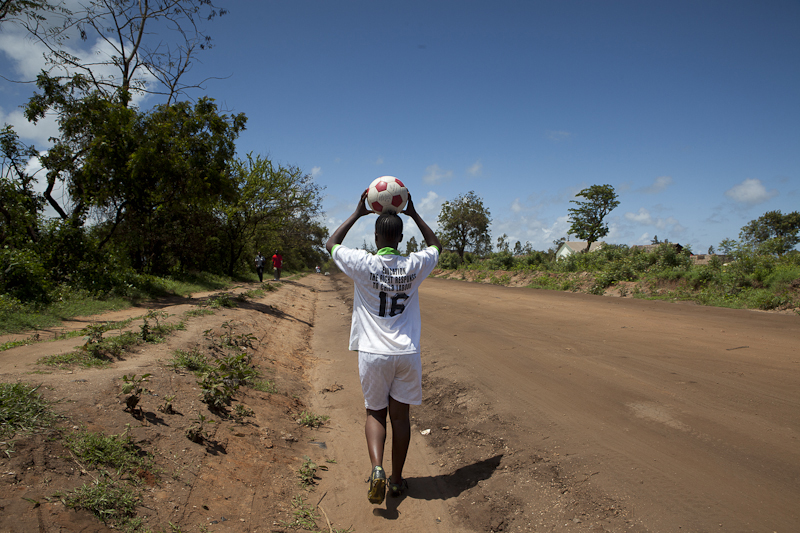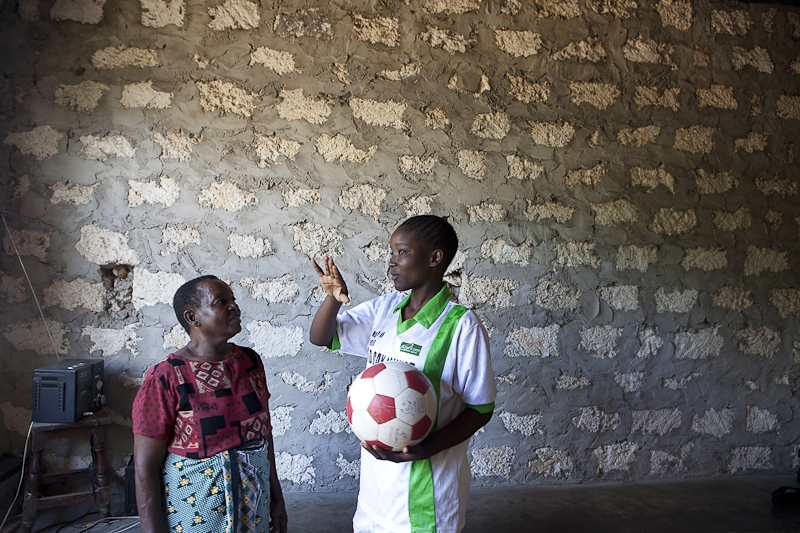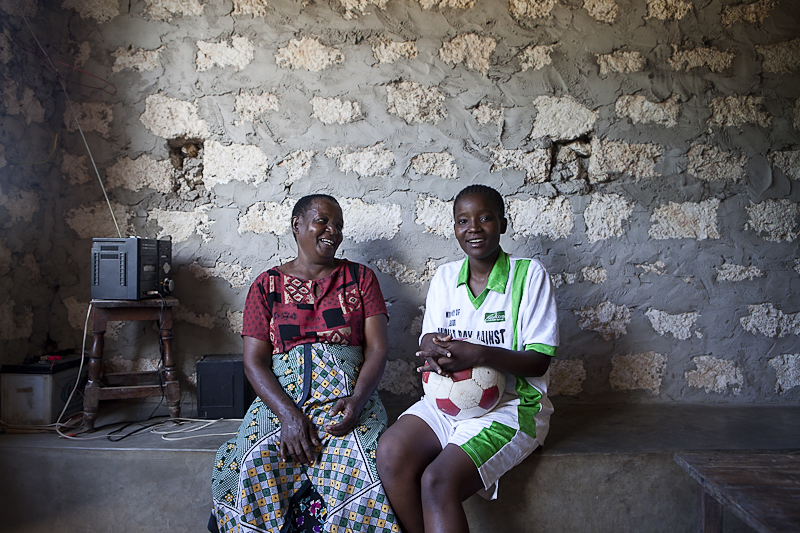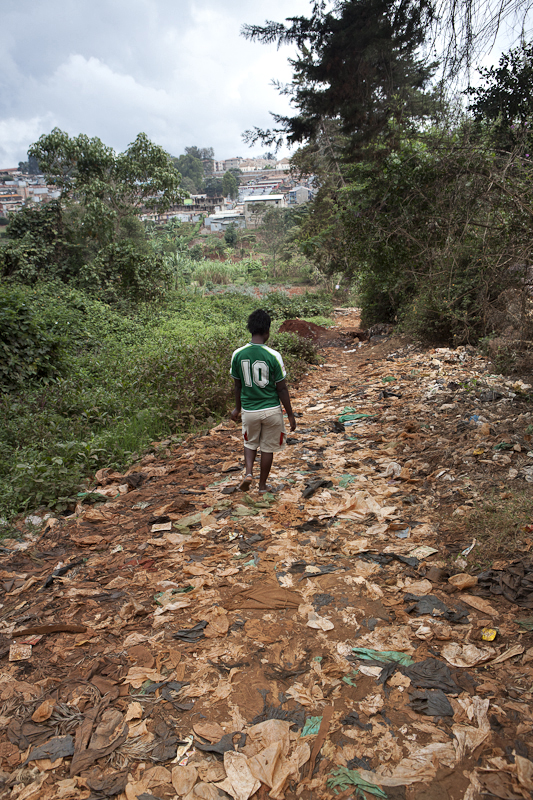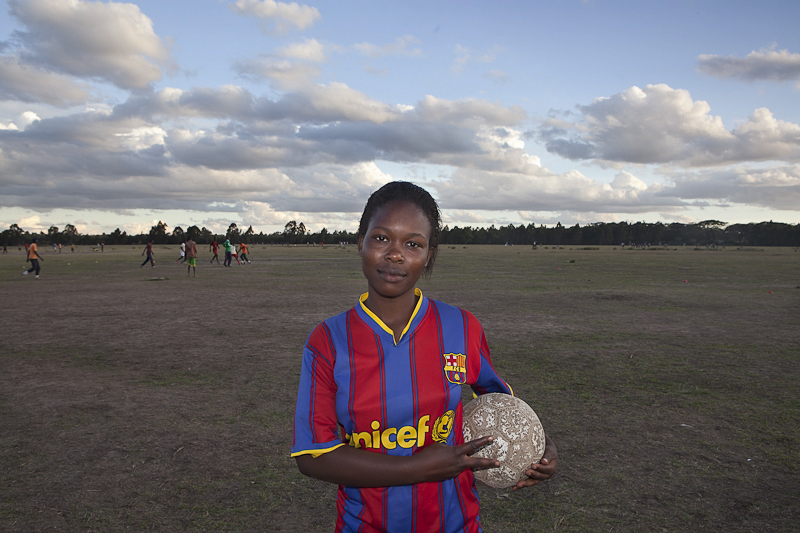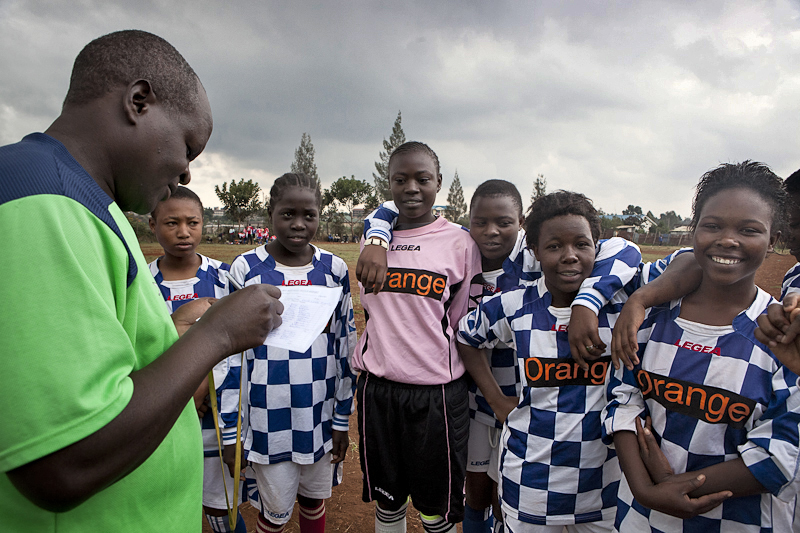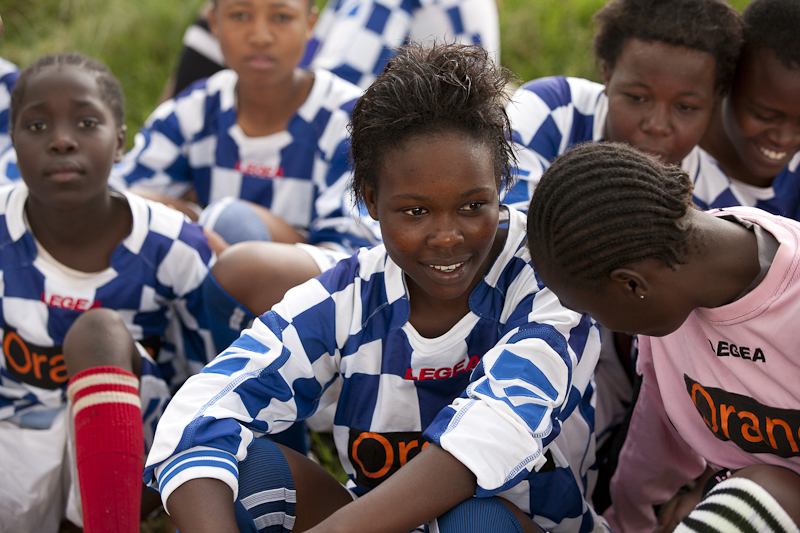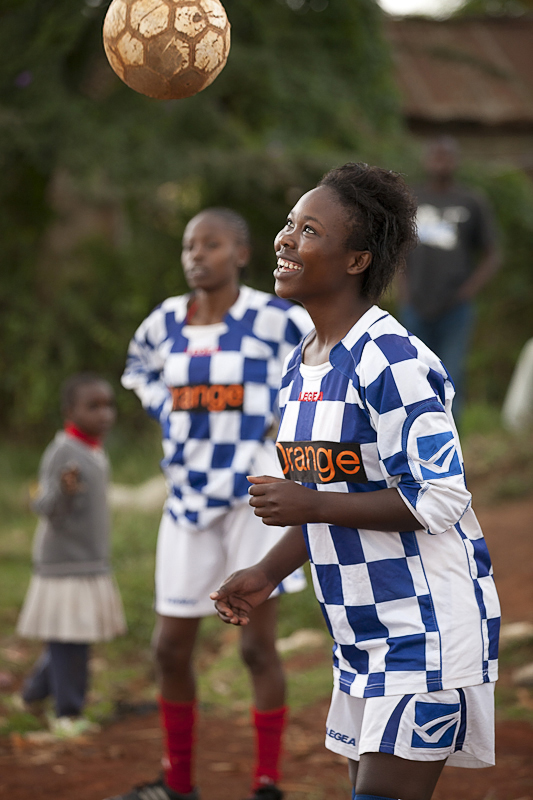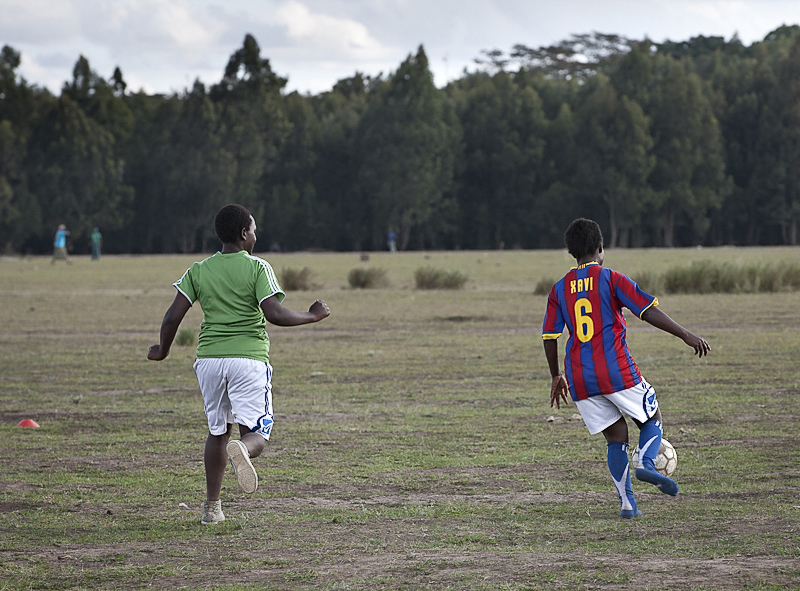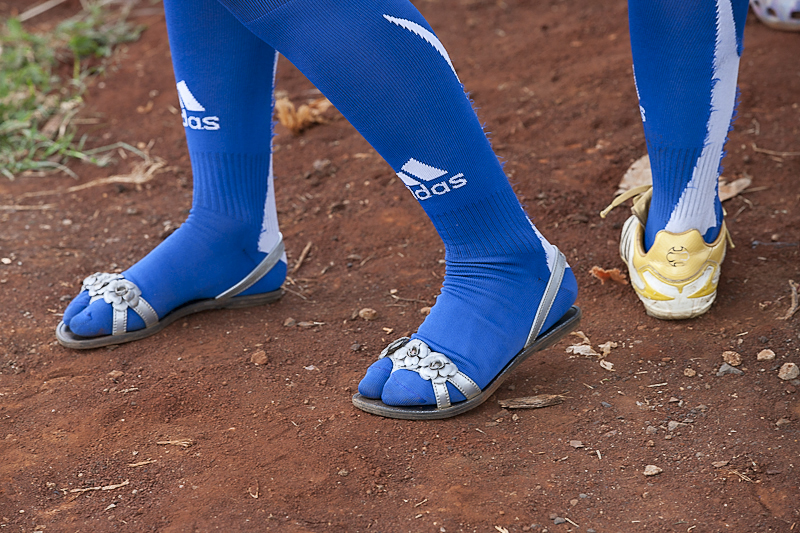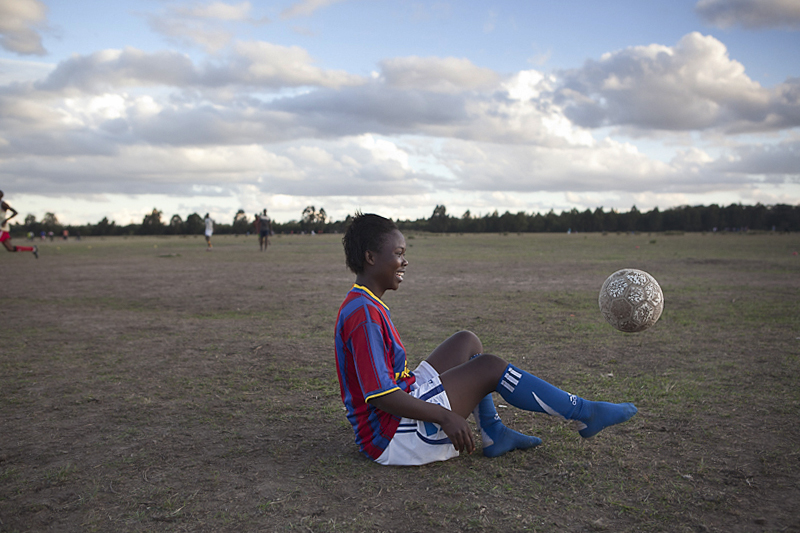(The following text has several contributors- primarily Joyce Ho, a Graduate Media Fellow from the Stanford School of Medicine and Leila Darabi from Planned Parenthood Global).
In Kenya, Planned Parenthood Global (PP Global) works with several local soccer leagues to integrate sexual and reproductive health education and services into their programs.
For many, expectations for their educational and career success do not extend beyond completing primary school. Some are already mothers. Joining an athletic league provides these young women with the chance to exercise, become part of a team, and have some fun. Evidence shows that young women who participate in team sports are more confident, stay in school longer, and set more ambitious career goals than those who never get to run across a field or score a goal.
Using their Youth Peer Provider model, PP Global’s partners train young people to become health educators and contraceptive counselors in their own right. Youth Peer Providers work closely with local clinics and are trained by public health experts to teach their peers how to avoid unwanted pregnancy and sexually transmitted infections, and to provide contraception to young people who need it. This peer-to-peer model circumvents the stigma and barriers that surround adolescent sexual and reproductive health services. In countries where talking to young people about sex remains taboo, Youth Peer Providers help their counterparts delay pregnancy, stay healthy, and stay in school.
We will follow two girls: Sylvia, who lives on in the Kilifi district on the coast of Kenya and Anne, who lives in an urban slum in Nairobi (names changed to protect their privacy).
In the Kilifi District on the coast of Kenya, HIV and teen pregnancy trap some of the world’s poorest and most disadvantaged adolescent girls in a relentless cycle of poverty. A local community organization called Moving the Goalposts (MTG) sought to address this issue by organizing a young women’s soccer league. By engaging these young women in physical activities that promote camaraderie, MTG helps its players build self esteem and leadership skills. The framework for MTG represented a unique entry point for reproductive health initiatives for these young women, to give them the knowledge and tools to protect their sexual health.
In 2011, MTG and Planned Parenthood formed a collaboration to build a sexual health youth peer provider program into the soccer league. Sylvia, age 22, is one of the first peer providers trained through the MTG and Planned Parenthood program in Kilifi. She plays on the older girls’ soccer league and teaches sexual health classes to her peers before games.
The unique quality of the peer provider program lies in increased access to the target population. Young people are hard to reach, especially in areas where enrollment in school is limited. Sometimes adults speak different languages from the younger generation, and oftentimes, youth shy away from asking questions about sexual health out of embarrassment or discomfort. Peer providers know exactly how to reach the ones they are trying to help – they know how to communicate effectively and lessons are safe places where girls can ask any sort of question and not feel embarrassed. Here, Sylvia demonstrates the proper way to use a condom while her teammates listen and learn.
A young woman in Kenya knows that if she gets pregnant, she will probably be forced to drop out of school and the course of her life will be unalterably changed, leaving her with very limited options. Through MTG and Planned Parenthood, these soccer players are becoming empowered to take their health needs into their own hands. Sylvia, a star player on her team, understands the importance of this program, and thus devotes many hours a week to peer counseling and soccer practice.
The girls don’t live close to the soccer fields. Many players walk miles from the slums to the more well-kept neighborhoods where the soccer games are held, demonstrating their true dedication to the program.
Sylvia lives at home with her mother, the head of the household, who is proud to have such a responsible daughter who spends time volunteering to help her community. Sylvia has an older sister who is currently married with children, and Sylvia wants to finish her education first before embarking on a similar life path.
Next year Sylvia plans to start classes at the local university. After finishing secondary school, she took time off to work and save up money, all the while debating whether college was within her reach. Sylvia’ experience with the team and the Youth Peer Provider program helped build up her confidence and plan for her future. This is in stark contrast to the future in store for many of her peers who haven’t finished secondary school and are already mothers. Sylvia has truly broken the mold, and unlike most of the young women who grew up in her neighborhood, she will make it to that next level of education. It is our hope that Moving the Goalpost and Planned Parenthood Global can continue to work together to inspire other similar girls to take ownership of their futures.
In Nairobi, PP Global partners with the Bravilian Queens, a nonprofit that organizes several teams in the newly established Nairobi Girls Soccer League. The program takes advantage of team practices, a time when a group of young women are gathered together, to provide basic sex education and answer any questions about puberty, sex, relationships and contraception.
Anne lives in one of the urban slums of Nairobi. To reach her home, one has to walk past an open latrine and then walk about 400 meters over a hill on a path littered with trash.
Here she is pictured with her parents and her younger sister.
Anne is not a Peer Counselor but one of the girls whose self-esteem is greatly benefited by her athletic prowess on the soccer field and her knowledge of her own reproductive health care needs.
Anne participates with great enthusiasm even though she does not have the funds to buy a pair of soccer shoes. She either borrows a spare pair when available or, in most cases, plays in knee socks and sandals.

